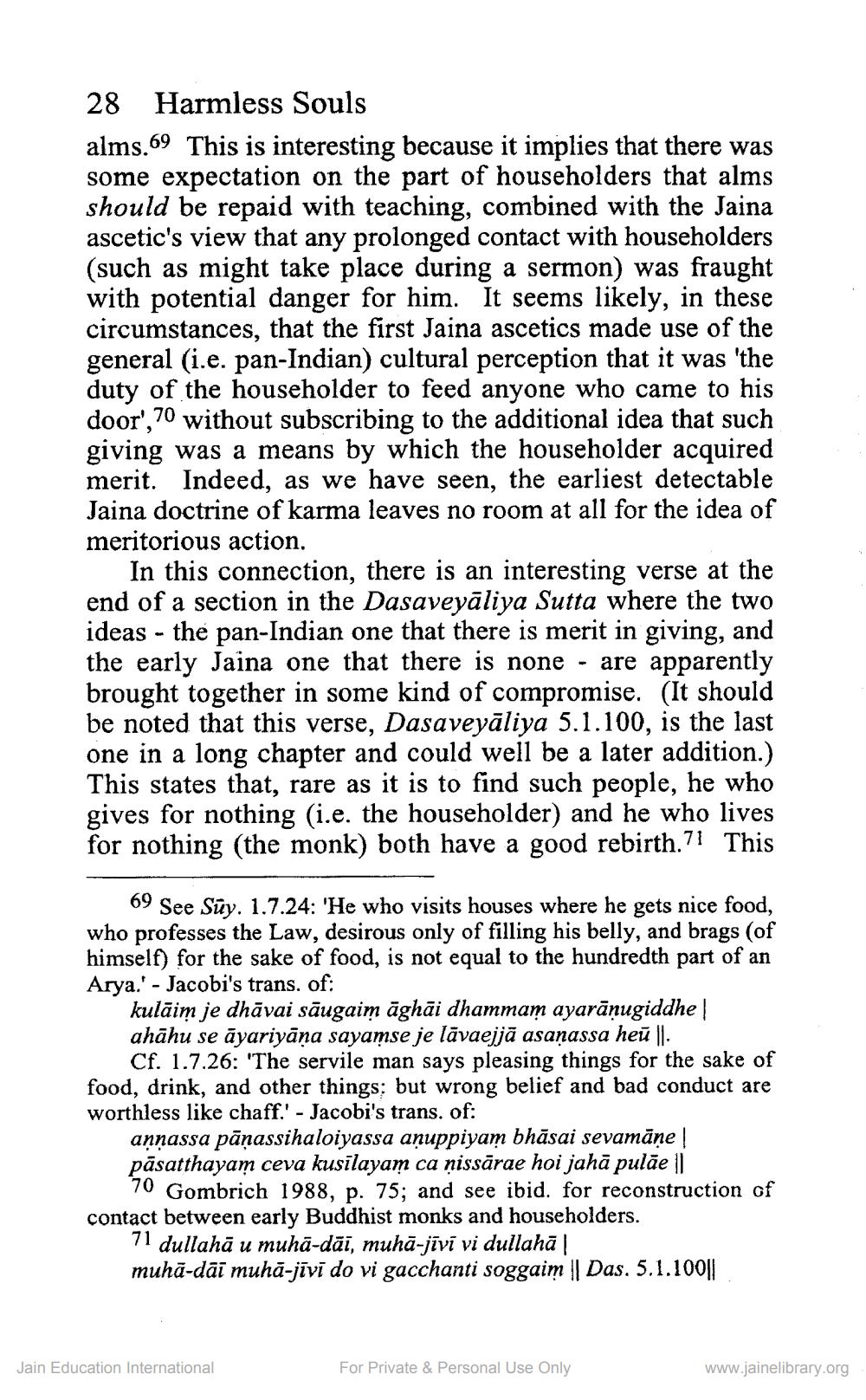________________
28 Harmless Souls alms.69 This is interesting because it implies that there was some expectation on the part of householders that alms should be repaid with teaching, combined with the Jaina ascetic's view that any prolonged contact with householders (such as might take place during a sermon) was fraught with potential danger for him. It seems likely, in these circumstances, that the first Jaina ascetics made use of the general (i.e. pan-Indian) cultural perception that it was 'the duty of the householder to feed anyone who came to his door', 70 without subscribing to the additional idea that such giving was a means by which the householder acquired merit. Indeed, as we have seen, the earliest detectable Jaina doctrine of karma leaves no room at all for the idea of meritorious action.
In this connection, there is an interesting verse at the end of a section in the Dasaveyāliya Sutta where the two ideas - the pan-Indian one that there is merit in giving, and the early Jaina one that there is none - are apparently brought together in some kind of compromise. (It should be noted that this verse, Dasaveyāliya 5.1.100, is the last one in a long chapter and could well be a later addition.) This states that, rare as it is to find such people, he who gives for nothing (i.e. the householder) and he who lives for nothing (the monk) both have a good rebirth.71 This
69 See Sūy. 1.7.24: 'He who visits houses where he gets nice food, who professes the Law, desirous only of filling his belly, and brags (of himself) for the sake of food, is not equal to the hundredth part of an Arya.' - Jacobi's trans, of:
kulāim je dhāvai sāugaim āghāi dhammam ayarāņugiddhe ahāhu se āyariyāņa sayamse je lāvaejjā asanassa heū ||.
Cf. 1.7.26: 'The servile man says pleasing things for the sake of food, drink, and other things: but wrong belief and bad conduct are worthless like chaff.' - Jacobi's trans. of:
annassa pāṇassihaloiyassa anuppiyam bhāsai sevamāne pāsatthayam ceva kusilayam ca nissārae hoi jahā pulāe ||
70 Gombrich 1988, p. 75; and see ibid. for reconstruction of contact between early Buddhist monks and householders.
71 dullahā u muhā-dāi, muhā-jīvi vi dullahā || muhā-dāi muhā-jīvi do vi gacchanti soggaim || Das. 5.1.100||
Jain Education International
For Private & Personal Use Only
www.jainelibrary.org




